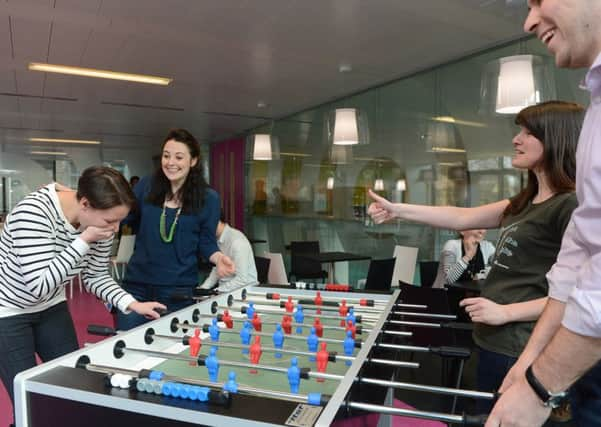Abigale Neate-Wilson: Creative hubs need more than quirky design
This article contains affiliate links. We may earn a small commission on items purchased through this article, but that does not affect our editorial judgement.


The Scottish creative industry has evolved quickly in recent years as a direct result of the fragmentation of the larger firms, with a growing number of freelancers, partnerships and networks setting up on their own and winning top-end contracts, filling the vacuum left by the contraction of larger firms.
Accustomed to high-quality space but looking for something more affordable, where they can forge new partnerships, this new wave of creative businesses also want space that reflects their innovative and tech-savvy enterprises – they need bespoke, interesting, comfortable and secure space, with opportunities to meet others, superfast broadband and on-site support from people who genuinely understand and support their industry.
Advertisement
Hide AdAdvertisement
Hide AdHowever, whilst a plethora of creative hubs springs up across Scottish cities (which in itself is good and a clear barometer of the resilience of the industry), there is perhaps a wide interpretation of what creatives need from a working environment.
As the creative sector holds strong against a tough economy, these businesses are seen as an increasing source of occupier revenue, and therefore momentum is growing to develop and monetise space for them. But these hubs work best when they truly cater to what creatives actually need – so it’s well worth taking the time to analyse these requirements before starting to build.
Being one of Scotland’s first and largest creative hubs – and one that operates in a city brimming with creative vigour – we’ve learnt over the years how to build, develop and grow a hub. We’ve recognised that as far as our tenants are concerned, simply leaving exposed brickwork and adding some quirky chairs isn’t enough – we have to be about much more that that. By their very nature, creatives are savvy people and it’s clear that we have to walk the walk, as well as talk the marketing talk.
It takes much more than left-field interior design to develop a space where people will actually want to be. It takes site events, where tenants can meet potential collaborators and form business relationships; on-site support as businesses grow and contract according to contract wins and losses (one of the biggest challenges for creative SMEs); flexibility and, vitally, affordability.
A recent audit of our tenants shows that no fewer than 60 new internal business collaborations have been formed at The Whisky Bond over the last year. Luck? No: we have made a real concerted effort to proactively introduce tenants to each other; either explicitly when we saw an opportunity for them to collaborate; or informally at site events such as Pecha Kucha talks, workshops or social gatherings.
Sixty collaborations is a number that took even us by surprise, but has shown us that we’re certainly on the right tracks, and that by supporting and actually knowing our tenants, we’re helping them grow and subsequently boosting the local and wider economy.
Advertisement
Hide AdAdvertisement
Hide AdAuthenticity is the key to a vibrant, well-used (and full) creative space. Creative people are business savvy – creating a hub with real substance is so much more important than superficial window dressing.
Offering proper resources and support beats quirky aesthetics, and we as landlords and developers must take our lead from what the creative sector actually wants and needs, if we want to get it right.
• Abigale Neate-Wilson is a project manager at TAKTAL, which runs the day-to-day management of The Whisky Bond